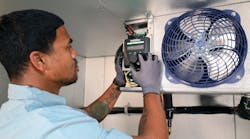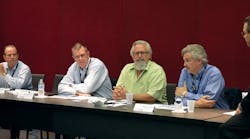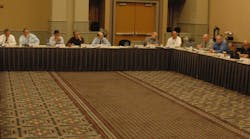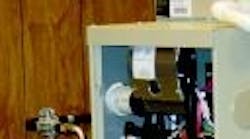As the number of active refrigeration technicians in the U.S. continues to dwindle, contracting businesses are finding themselves in a real jam. The average age of a refrigeration technician is 50. Older employees are retiring, and it’s becoming increasingly more difficult to replace them with newer technicians, let alone newer, younger technicians looking for a good career. The blow-back is serious, and doesn’t appear to be improving.
The lack of growth, coupled with base demand levels will result in a steadily growing gap between technicians and jobs. — Joe Matthews
“The lack of growth, coupled with base demand levels will result in a steadily growing gap between technicians and jobs,” says Joe Matthews, president of 5-Star Refrigeration & Air Conditioning, Inc.
“This supply-and-demand deficit is compounded by the more subtle, but equally damaging, inability to implement new technology and place advanced equipment in the field operationally. Given the lack of adequately trained install/service providers, the result is higher levels of aging and increasingly inefficient equipment remaining in service with higher operational and environmental costs to our clients,” Matthews says.
Additional collateral damage will include a growing wage imbalance for the limited pool of technicians, which will raise overall service and installation costs.
The HVACR industry’s employee vacuum has been well-documented in the pages of ContractingBusiness.com and elsewhere, but not much has been done to alter the situation. Some manufacturer-based training is helping as does vocational school instruction, but Matthews believes more needs to be done on the commercial refrigeration training front.
S.T.A.R.S. School an Answer
Matthews is seeking manufacturer contributions to help fund an advanced commercial refrigeration training facility: the Supermarket Technology and Refrigeration Specialty School (S.T.A.R.S.), a non-profit enterprise, with a 501(c)(3) classification.
“It will be our singular mission at S.T.A.R.S. to bridge the gap: to begin to work against this industry-wide issue and act now, to correct this imbalance,” Matthews says. “We will provide a fresh market of qualified, skilled, advanced technicians, capable of tackling the latest technologies with innovative solutions.” Matthews says S.T.A.R.S. is designed to be a hands-on training center, where students will work on operating equipment donated by founding manufacturer partners. It will certify top-level, class A, B, and C technicians, through 240 hours of practical servicing and troubleshooting exercises, combined with complete education on the science and theory behind the technologies.
“This curriculum is being designed by recognized, top-level industry-wide technicians, along with the supervisors, contractors, manufacturers and retailers responsible for measuring and rewarding their performance in today’s refrigeration industry,” Matthews says.
Another goal of S.T.A.R.S. will be to provide an industry-leading, formal certification program, to replace training that occurs in individual companies, with varying degrees of success and competency outcomes.
There’s interest by manufacturers, but not in the form of cash."
“S.T.A.R.S. will provide training for many industry-wide journeymen technicians working for companies lacking the resources to train from within,” Matthews explains. “Additionally, S.T.A.R.S. opens an entirely new market of qualified candidates the opportunity to advance their career towards increasing compensation, job security and satisfaction.”
As it’s envisioned, the school will initially draw students from Florida. Eventually, Matthews hopes to offer housing and/or branch locations, and some online training to overcome the travel challenges some students may face.
Matthews’s initial plan was to launch the school in October of 2015, but due to lack of funding, that date will have to be changed. The project needs $1.2 million, which initially would have been provided by five founding partners, donating $80,000 per year, for three years.
There would be a tuition fee, and entrants would need to take a placement test, or have some years of industry technical experience.
To obtain financial support, Matthews reached out to people from 12 large manufacturing companies. “There’s interest by all of them, but not in the form of cash. We’ll put our heads together to come up with a new plan of action, which will require reaching out to many more manufacturers,” he says. “We’re going to have to get more players, and ask for a reduced contribution.
Matthews and the S.T.A.R.S. board of directors were to meet in December to draw up an alternative funding schedule that would take the planning well into 2015.
HVACR manufacturers who would like to help fund S.T.A.R.S. are asked to contact Joe Matthews, at [email protected]; phone: 352-398-2448.











